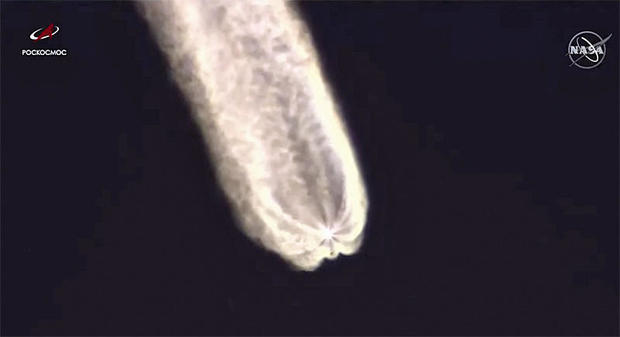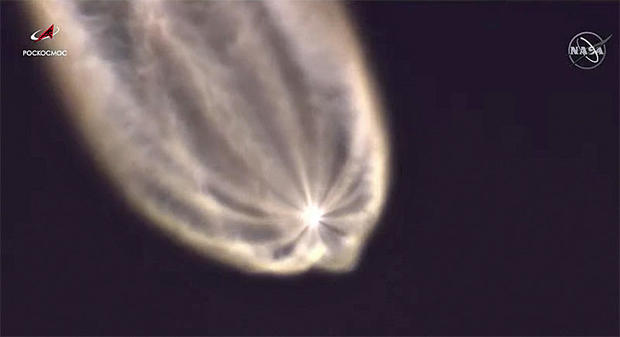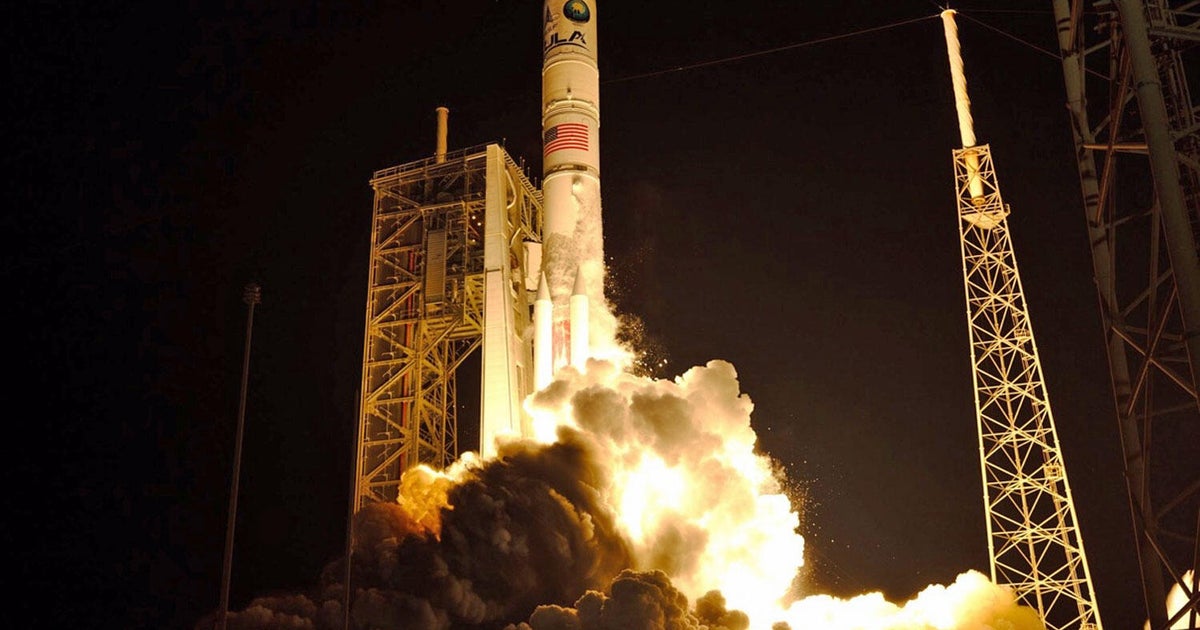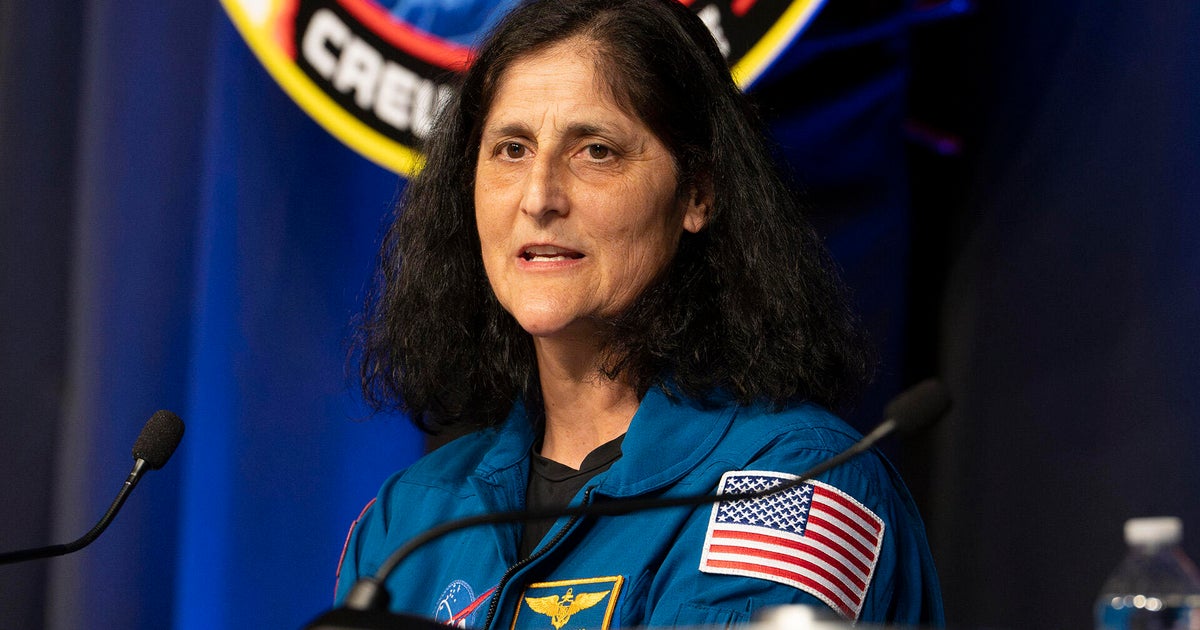Russian cargo ship sets off after the International Space Station in dramatic sky show
A Russian Progress cargo ship blasted off from the Baikonur Cosmodrome in Kazakhstan on Tuesday and set off after the International Space Station, climbing into the light of the rising sun and putting on a spectacular show as its expanding exhaust plume billowed and blossomed in the upper atmosphere.
The Progress MS-17/78P spacecraft and its Soyuz 2-1a booster took off from the Baikonur Cosmodrome at 7:27 p.m. ET (4:27 a.m. Wednesday local time), lighting up the predawn sky as it climbed directly into the plane of the space station's orbit to kick off a two-day rendezvous.
As it gained altitude, the rocket's exhaust plume expanded in the lower-pressure of the upper atmosphere, illuminated by the sun in dramatic fashion in a coincidence of launch timing. A few minutes later, the unpiloted Progress spacecraft separated from the Soyuz upper stage, unfolded its solar arrays and began chasing down the space station.
If all goes well, the cargo ship will guide itself to docking at the upper space-facing port of the Russian Poisk module around 9:03 p.m. Thursday. Cosmonauts Oleg Novitskiy and Pyotr Dubrov will be waiting inside the station, ready to take over by remote control if any problems develop.
The Progress is loaded with 1,734 pounds of spare parts and supplies, 926 pounds of water, 882 pounds of propellant and 89 pounds of nitrogen. Its arrival will set the stage for launch of the long-delayed Nauka laboratory module on July 15 that will greatly expand the Russian segment of the space station.
The 44,800-pound module will serve as a laboratory — its name means Science in Russian — providing additional crew quarters, life support equipment, a galley, toilet, a docking port and a European Space Agency robot arm, along with a small airlock that can be used to expose experiments to the space environment.
To make way for the laboratory, the Progress MS-16/77P cargo ship, which arrived at the station in February, will back away on July 17, pulling the Pirs airlock and docking compartment away from the Zvezda module where it's been docked for the past 20 years. The Progress will then drive both spacecraft into the atmosphere where they will burn up over the Pacific Ocean.
NASA astronauts inside the station will use the lab's robot arm to carry out a photo survey of the vacant Zvezda port, making sure no debris is present that might interfere with the lab's docking, expected to take place July 23. A dozen Russian spacewalks will be needed to connect power and data cables, along with docking equipment and other systems.





